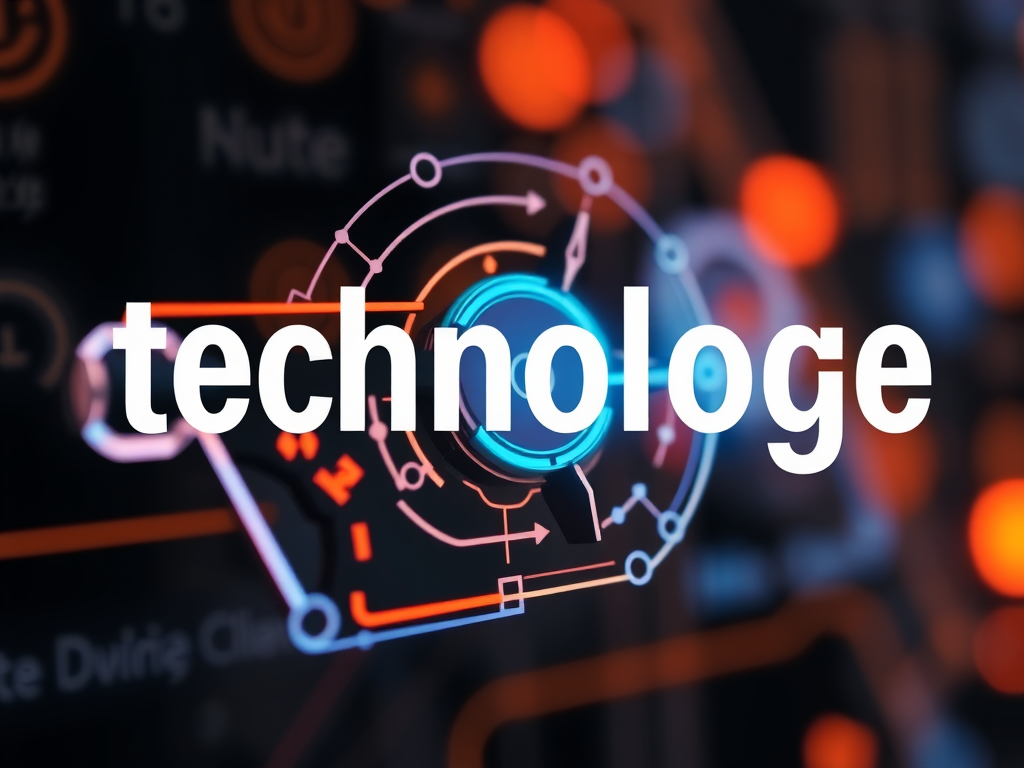The Evolving Landscape of UK Computing Hardware and IoT Integration
The UK computing hardware sector has seen significant advancements that directly influence the rapid expansion of the Internet of Things (IoT) within the country. Over recent years, the UK technology ecosystem has developed robust capabilities in designing and manufacturing hardware components tailored specifically for IoT applications. This progress positions the UK as a notable player in the global IoT market.
Historically, the UK held a strong footing in semiconductor research and embedded systems, laying a solid foundation for the current momentum in IoT expansion. Now, this heritage translates into innovations in microprocessors, sensors, and connectivity modules that are crucial to IoT devices. UK computing hardware manufacturers focus on energy efficiency and miniaturization, which are essential features for the wide deployment of IoT devices in sectors like smart homes, healthcare, and industrial automation.
Also to read : How Has UK Computing Hardware Influenced Technological Advances Globally?
The UK technology ecosystem is characterized by close collaboration between academia, startups, and established companies, fostering an environment conducive to hardware innovation. This synergy accelerates the development of new technologies and ensures that UK computing hardware remains relevant to evolving IoT demands. As the IoT integration grows, the alignment between hardware advancements and software capabilities strengthens the UK’s position in this global domain.
In summary, the evolving landscape of UK computing hardware is a key driver behind the IoT expansion witnessed in the country. The UK’s sustained focus on hardware innovation, combined with a vibrant technology ecosystem, enables it to contribute significantly to IoT infrastructure development both domestically and on the world stage.
Have you seen this : Exploring the advantages of uk computing hardware for the financial sector
Key Hardware Contributions to IoT Expansion in the UK
The UK manufacturing sector plays a pivotal role in driving the IoT expansion through specialized IoT hardware development. Key capabilities include the production of highly efficient microcontrollers, low-power sensors, and advanced connectivity modules tailored to meet the rigorous demands of modern IoT applications. These components enable the creation of reliable and scalable smart devices capable of seamless integration into varied IoT ecosystems.
In the UK, precision engineering and innovation in hardware design have fostered advances that are central to IoT deployment, particularly in areas requiring miniaturization and energy efficiency. These characteristics are essential for widespread IoT adoption, where devices often operate remotely or rely on battery power. The UK manufacturing base supports this by ensuring that hardware solutions meet both performance and durability standards critical to IoT success.
Case studies highlight how UK-made components are embedded within major IoT solutions, from smart home devices to industrial monitoring systems. For example, sensors manufactured in the UK are now integral to systems that monitor environmental conditions in commercial buildings, improving energy consumption and sustainability metrics. This underlines how UK hardware contributes directly to enhancing the functionality of smart devices within broader IoT infrastructure.
Overall, the strength of UK IoT hardware lies in its ability to innovate and reliably supply components that meet the evolving requirements of diverse IoT applications. This technical proficiency supports not only domestic usage but also reinforces the UK’s position within the global landscape of IoT development.
The Evolving Landscape of UK Computing Hardware and IoT Integration
The UK computing hardware sector remains at the forefront of driving the ongoing IoT expansion through continuous technological breakthroughs and strategic collaboration. Historically, the UK has leveraged its rich heritage in semiconductor research and embedded systems to build sophisticated hardware platforms optimized specifically for IoT needs. This legacy underpins the national focus on developing microprocessors and sensor technologies designed to meet stringent requirements such as low power consumption, compact form factors, and enhanced connectivity.
Within the broader UK technology ecosystem, partnerships between universities, innovative startups, and established manufacturers play a critical role. These collaborations accelerate the translation of cutting-edge research into commercial IoT hardware products, ensuring compatibility and seamless integration with global digital infrastructures. Additionally, regulatory frameworks and government incentives within the UK actively encourage hardware innovation, bolstering the country’s competitive stature in the international IoT market.
The UK’s current position as a leader in IoT expansion is strengthened by its ability to produce energy-efficient components that enable both consumer and industrial smart devices. By emphasizing scalability and interoperability, UK computing hardware supports an expanding array of use cases, from smart homes to intelligent industrial automation. This dynamic alignment between hardware advancement and practical application ensures that the UK maintains a significant presence in shaping the future of connected technologies worldwide.
The Evolving Landscape of UK Computing Hardware and IoT Integration
The UK computing hardware sector stands as a cornerstone for the ongoing IoT expansion, with substantial advancements shaping the future of connected technologies. Historically, the UK’s deep-rooted expertise in semiconductor research laid the groundwork for evolving innovations that now produce energy-efficient microprocessors and sensors critical for IoT applications. This historical context not only informs current hardware designs but also reinforces the UK’s position as a global innovator in IoT hardware development.
Within the UK technology ecosystem, collaboration between academic institutions, manufacturing hubs, and technology startups fosters a continuous pipeline of innovation. This interconnected environment accelerates the translation of pioneering research into tangible hardware solutions, fine-tuned to optimize power consumption, miniaturization, and connectivity—key requirements for smart devices in IoT ecosystems. Moreover, government policies that support R&D activities enhance the UK’s capability to meet global demands and facilitate the seamless integration of hardware with emergent software platforms.
The UK’s current global standing in IoT expansion is underscored by its ability to innovate adaptable hardware that supports diverse IoT use cases—from smart home automation to industrial monitoring and healthcare devices. This adaptability results from a focused emphasis on manufacturing processes that ensure quality, scalability, and interoperability. These factors solidify the UK’s reputation as a pivotal contributor to the global IoT market by creating hardware that powers an increasingly interconnected world.
The Evolving Landscape of UK Computing Hardware and IoT Integration
The UK computing hardware sector demonstrates a robust trajectory that underpins the sustained momentum of IoT expansion within the country. This progress is rooted not only in the UK’s historical expertise in semiconductor development but also in its adaptive response to the evolving demands of connected technologies. UK engineers and researchers focus intently on enhancing energy efficiency, miniaturization, and seamless connectivity—core dimensions critical for contemporary IoT deployment.
An essential element driving the UK’s prominence in this space is the dynamic UK technology ecosystem. It acts as a catalyst for translating pioneering research innovations into practical hardware solutions. Universities, startups, and manufacturing firms collaborate closely, fostering an environment where emerging technologies can be tested and refined in real-world settings. For instance, microprocessors and sensor technologies developed in the UK are optimized specifically for smart devices that require low power consumption and high reliability, characteristics necessary for successful IoT applications across sectors.
This ecosystem is further strengthened by targeted government policies and funding mechanisms designed to support R&D in hardware innovation. Through these initiatives, the UK not only maintains but also enhances its position in the global marketplace by producing cutting-edge IoT hardware that delivers on scalability and interoperability. Consequently, the UK computing hardware landscape continues to adapt, ensuring compatibility with emergent software frameworks and meeting the diverse requirements of an expanding IoT infrastructure.
The Evolving Landscape of UK Computing Hardware and IoT Integration
The UK computing hardware sector continues to be a critical driver in the accelerating IoT expansion, propelled by focused innovation and strategic collaboration within the UK technology ecosystem. The UK’s long-standing expertise in semiconductor design has evolved into cutting-edge development of microprocessors and sensor arrays optimized for connectivity, power efficiency, and miniaturization—hallmarks of modern IoT devices.
Historically, the UK established a technical foundation through pioneering research in embedded systems and integrated circuits, which now underpins its leadership in creating hardware tailored for diverse IoT environments. This historical background supports the current development of adaptable platforms capable of meeting stringent global standards for interoperability and sustainability, ensuring UK hardware remains competitive in worldwide IoT markets.
Within the UK technology ecosystem, a strong network of academic institutions, innovative startups, and mature manufacturing firms collaborates to translate research breakthroughs into commercially viable products. These partnerships prioritize hardware architectures that support seamless integration with evolving software platforms and cloud infrastructures essential for the scalable deployment of smart devices. Government-funded initiatives also bolster this ecosystem by targeting R&D funding specifically aimed at enhancing UK contributions to the global IoT expansion.
This synergy enables the UK to maintain a distinctive position by producing hardware components that not only address energy consumption and size constraints but also accommodate expanding IoT use cases—from consumer smart home applications to industrial automation and healthcare analytics. As a result, the UK computing hardware landscape remains agile and future-ready, continuously aligning with emerging connectivity protocols and data processing requirements inherent to the evolving IoT paradigm.





